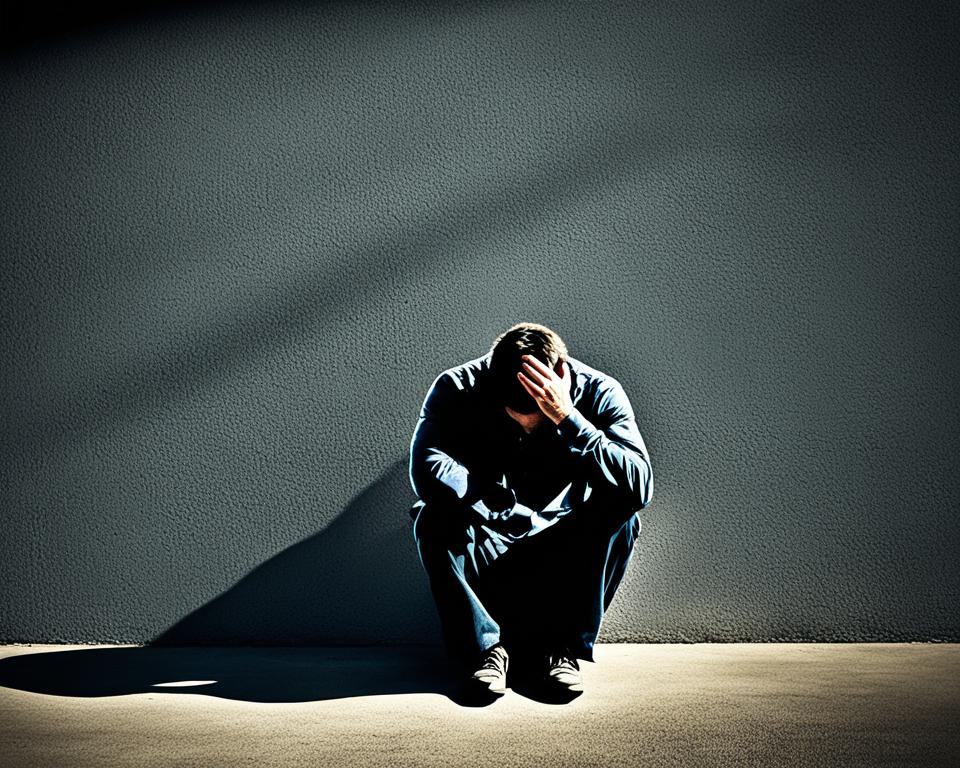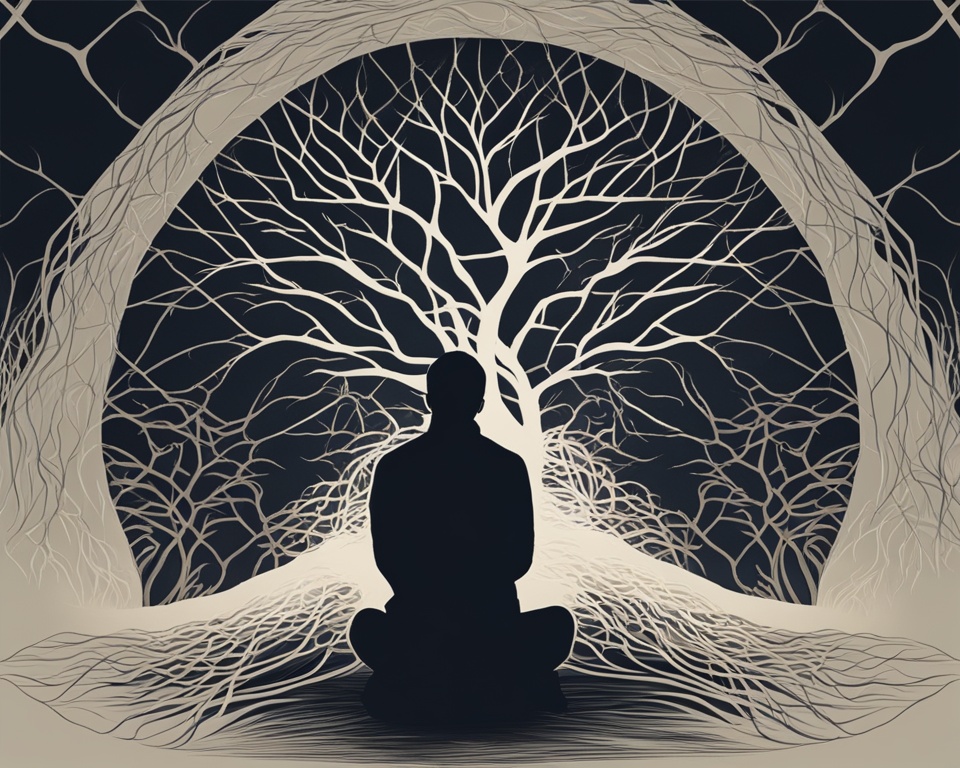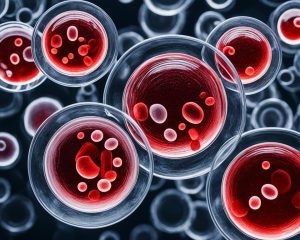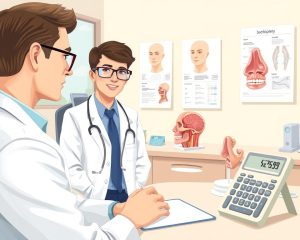
Depression is a tough mental health issue that can lead to serious problems if not treated. When people with depression don’t get help, they face many risks. These risks can harm their overall health and well-being. This article looks at the dangers and long-term effects of not treating depression. It highlights why getting help early is so important.
Read interesting things at : luoghievisioni
Key Takeaways
- Untreated depression can lead to a worsening mental and emotional state, causing psychological turmoil and distress.
- Neglecting depression symptoms can make the condition worse, leading to a broader mental health crisis.
- Depression that’s not managed can affect physical health, relationships, and work life negatively.
- Not treating depression raises the risk of substance abuse and harmful behaviors.
- Getting professional help is key to stopping the cycle of ignored mental health and getting better.
Unraveling the Dangers of Untreated Depression
When depression is ignored, it can cause huge problems for the mind and heart. Not dealing with mental health can lead to ongoing psychological turmoil and emotional distress. This can trap people in a cycle of deep sadness.
Psychological Turmoil and Emotional Distress
Not managing mood disorders can really hurt a person’s mind. Depression without treatment can cause big mood swings and feelings of no hope. It makes it hard to handle daily life, hurting overall well-being.
Neglected Symptoms and Disregarded Suffering
Ignoring the signs of depression can make things worse. It leads to more psychological turmoil and emotional distress. This cycle of disregarded suffering can be very harmful. It makes it hard for people to get the help they need to beat their mental health issues.
| Consequence | Impact |
|---|---|
| Psychological Turmoil | Debilitating mood swings, feelings of hopelessness, emotional instability |
| Emotional Distress | Persistent sadness, anxiety, loss of interest in daily activities |
| Disregarded Suffering | Exacerbation of mental health challenges, hindrance in seeking support |
“The greatest weapon against stress is our ability to choose one thought over another.” – William James
Mental Health Crisis: A Ticking Time Bomb
Ignoring mental health issues can lead to a big crisis, threatening a person’s well-being. Depression, if not treated, can cause deep emotional and psychological pain.
When people ignore signs like sadness, losing interest, and feeling worthless, things get worse. These ignored symptoms can make mental health decline, leading to a crisis that needs quick help.
A mental health crisis can show in many ways, like thinking about suicide, harming oneself, or severe anxiety. If not stopped, it can ruin a person’s life in many areas.
| Symptom | Potential Consequence |
|---|---|
| Persistent Sadness | Suicidal Ideation |
| Loss of Interest | Withdrawal from Relationships |
| Feelings of Worthlessness | Decline in Self-Esteem |
We must pay attention to the mental health crisis. Getting help early can stop symptoms from getting worse and prevent a big crisis. This helps protect a person’s long-term health.
“Unaddressed mental health symptoms are like a time bomb, ticking away until they explode into a full-blown crisis. The time to act is now, before it’s too late.”
Deteriorating Well-being: The Ripple Effect
Untreated depression can deeply affect a person’s well-being. It can start a chain reaction, harming physical, emotional, and social life. This can lead to a slow decline in a person’s life quality.
Unaddressed Symptoms and Overlooked Illness
Ignoring depression symptoms can lead to big problems. People may face many issues, such as:
- Persistent feelings of sadness, emptiness, and hopelessness
- Loss of interest in activities and hobbies once enjoyed
- Disrupted sleep patterns, either oversleeping or insomnia
- Sudden weight changes, either loss or gain
- Increased fatigue and lack of energy
- Difficulty concentrating and making decisions
- Recurring thoughts of death or suicide
When these unaddressed symptoms and the overlooked illness of depression are ignored, it can deeply affect a person’s life. It can harm daily activities, relationships, and overall life quality.
Untreated depression can cause a lot of harm. It can lead to many challenges that affect physical, emotional, and social health. It’s important to seek help early to stop this decline and improve health and life quality.
Unmanaged Mood Disorder: A Path to Self-Destruction
When an unmanaged mood disorder like depression is left untreated, it can quickly lead to a dangerous path of self-destruction. This neglected condition can have devastating effects, hurting both the person and their loved ones.
Depression without treatment can cause harmful behaviors. These include using drugs, harming oneself, and thinking about suicide. These actions may seem to help at first but make the mental health problem worse and can lead to serious issues.
Not getting help for depression starts a cycle of emotional pain. People may feel trapped in a deep sadness and hopelessness. This can harm their mental, physical health, relationships, and work life.
| Symptom | Potential Consequences |
|---|---|
| Persistent sadness | Social isolation, strained relationships |
| Lack of motivation | Decreased productivity, job loss |
| Suicidal thoughts | Attempted suicide, loss of life |
It’s important to see the risks of unmanaged mood disorders and get help. With the right treatment and support, people can stop the cycle of self-destruction. This leads to better mental health and a more fulfilling life.
“The greatest weapon against stress is our ability to choose one thought over another.”
– William James
Untreated Depression and Its Impact on Relationships
Untreated depression can deeply affect both personal and work relationships. It brings emotional turmoil and psychological distress. This can lead to big problems in how people talk to each other and connect.
Emotional Turmoil and Interpersonal Strain
People with untreated depression find it hard to keep relationships strong and happy. They might pull away or seem distant, causing gaps in their connections. This can make relationships worse, leading to misunderstandings and broken trust.
Not dealing with depression also makes it tough to share feelings and needs. This makes the problems in relationships even bigger. As time goes on, both sides may feel left out and upset.
“Untreated depression can be like a silent wedge, gradually driving a rift between the individual and their loved ones, making it harder to bridge the divide and find common ground.”
Getting help from a professional is key to fixing the damage. With the right treatment, people can feel better emotionally. They can talk better and build stronger, happier relationships.
The Vicious Cycle of Neglected Mental Health
Ignoring mental health can start a vicious cycle that gets worse. When people with depression don’t get the right treatment, their symptoms get worse. This makes it hard to get out of the cycle.
The cycle of untreated depression involves many factors. Symptoms like constant sadness and feeling worthless can make things worse. This can stop people from asking for help because they feel overwhelmed or ashamed.
Depression that’s not treated can hurt a person’s life in many ways. It can damage relationships and make it hard to work. It can even cause physical health issues. This makes it harder to escape the cycle.
To stop this cycle, it’s key to focus on mental health and get help. Getting help early and sticking with treatment can ease depression symptoms. By facing the issues and taking care of oneself, people can start to feel better and break the cycle.
| Stages of the Vicious Cycle | Consequences |
|---|---|
| Neglected mental health | Worsening symptoms, emotional turmoil, and psychological distress |
| Reluctance to seek help | Strained relationships, decreased productivity, and physical health problems |
| Deteriorating well-being | Increased difficulty in breaking free from the cycle |
To stop the vicious cycle of neglected mental health, people must act. They need to face their depression and get professional help. By doing this, they can start moving towards a better life.
Untreated Depression and Its Link to Substance Abuse
When depression is not treated, people might use drugs or alcohol to cope with their feelings. This link between untreated depression and substance abuse is a big problem that needs attention.
People often start by trying to handle their untreated depression but end up using substances like alcohol or drugs. This might seem to help at first, but soon, it makes things worse. The overlooked illness of depression and the substance abuse problems feed each other, making things spiral down.
Getting help is key to stop this cycle. It’s important to deal with both the untreated depression and any substance abuse issues. If not, both problems can get worse, harming your overall health and life quality.
“The neglect of one’s mental health can have far-reaching consequences, including the increased risk of substance abuse. It’s essential to seek help and address the underlying issues to regain control and achieve lasting recovery.”
Seeing the connection between untreated depression and substance abuse is the first step to getting better. By treating both conditions, people can start to heal and move towards a healthier life.
Productivity Pitfalls: The Professional Consequences
Untreated depression can really hurt someone’s career. If you don’t deal with it, you might see your work drop. This can put your job at risk.
Disregarded Suffering and Career Setbacks
People with depression find it hard to stay focused and motivated at work. Not getting help can lead to missing deadlines and poor job performance. It might even cause you to lose your job.
Depression can also make it tough to work well with others. This can hurt your relationships with coworkers, bosses, and clients. It makes work harder than it should be.
“Untreated depression is a silent career killer, robbing individuals of their professional potential and undermining their long-term career success.”
It’s important to get help for depression for your career and well-being. Getting the right treatment can make you more productive and help you succeed in your job.
Putting mental health first can help you take charge of your career. It can prevent career problems and help you do your best at work.
Aggravating Physical Health: The Mind-Body Connection
Research shows a strong link between untreated depression and its harm to physical health. This neglected condition can make health problems worse or lead to new ones. It highlights the need to understand the mind-body connection.
Untreated depression has big effects on the body. It can cause stress hormones to go up, weaken the immune system, and mess with sleep. These issues can make chronic illnesses worse, make you more likely to get infections, and lower your overall health.
- Untreated depression can make health problems like heart disease, diabetes, and chronic pain worse.
- Depression’s effects, like hormonal imbalances and a weak immune system, can lead to new health issues.
- Not treating depression can harm both your mental and physical health, starting a cycle of getting worse.
It’s key to see how the mind-body connection works to tackle the untreated depression problem. A complete healthcare plan that looks at mental and physical health can help people escape the cycle of bad mental health and its effects.

“The mind and body are not separate entities, but rather two sides of the same coin. Neglecting one inevitably compromises the other.”
The Economic Burden of Untreated Depression
Untreated depression takes a huge toll on people, but it also hits the wallet hard. This mental health crisis costs a lot, affecting both individuals and society. It’s a big financial hit.
Not treating depression can lead to big costs. These include more doctor visits, hospital stays, and emergency care. According to a study by the World Health Organization, the global economic cost of depression is estimated to be $1 trillion per year in lost productivity. This shows we need to act fast to help people with depression.
| Cost Category | Impact of Untreated Depression |
|---|---|
| Healthcare Costs | People with untreated depression visit doctors more often, stay in the hospital longer, and use emergency services more. This means higher healthcare costs. |
| Reduced Productivity | Depression makes it hard to focus, make decisions, and do your job well. This can lead to less work done and even losing a job. |
| Disability and Absenteeism | Depression can cause people to file for disability and miss work more often. This puts a strain on employers and the economy. |
By tackling depression and investing in mental health care, we can help people feel better and ease the economic strain. Seeing the big picture of depression’s effects is key to creating a healthier future for everyone.
Seeking Help: Breaking the Stigma
Getting help for depression is key to beating the emotional and mental struggles it brings. But, many don’t seek help because of the stigma around mental health. It’s important to push past these barriers and urge those with depression to get the help they need.
Overcoming Emotional Turmoil and Psychological Distress
The first step is to admit the emotional and mental pain from depression. This can be hard, but it’s crucial to see the need for help. By talking to mental health professionals, people can get the right diagnosis and support to start their recovery.
- Understand the importance of addressing emotional turmoil and psychological distress.
- Recognize the benefits of seeking professional help for untreated depression.
- Explore strategies to overcome the stigma and take the initial step towards seeking assistance.
It’s vital to break the stigma around mental health to get more people to seek help. By talking openly about depression and showing there are effective treatments, we can help people put their health first and move towards recovery.
“Seeking help is a sign of strength, not weakness. It takes courage to acknowledge and address mental health challenges, but the rewards of doing so are immeasurable.”
Remember, asking for help shows strength, not weakness. By fighting the stigma and supporting mental health, we can make a caring space for those with depression.
Treatment Options: A Path to Recovery
Dealing with an unmanaged mood disorder can feel overwhelming, but there is hope. Many effective treatments are available for those struggling with depression and other mental health issues. These options can help people find their way to recovery.
Talk therapy, also known as psychotherapy, is a key part of treating depression. Cognitive-behavioral therapy (CBT) helps patients change negative thoughts into more positive ones. This leads to better ways of coping with challenges.
Medicine can also be a vital part of treatment, under a doctor’s careful watch. Antidepressants like SSRIs can balance the brain’s chemicals, easing depressive symptoms.
Alongside these, holistic methods like mindfulness, exercise, and nutrition can boost treatment results. They focus on the connection between our minds and bodies. This approach helps people manage their condition more effectively.
Success in treatment comes from a personalized plan that fits each person’s needs. By getting professional help and using tailored treatments, those with mood disorders can start to take back control. They can move towards feeling better and fully recovering.

“The journey of recovery is not a straight line, but a winding path. With the right support and treatment, it is possible to navigate the challenges and emerge stronger than before.”
Untreated Depression: A Preventable Crisis
Depression is a common mental health issue that can worsen without treatment. It’s not a fate you must accept. Early action and care can stop the harm it can cause.
Recognizing depression early is key to stopping it. Getting help right away means you can manage it better. Early intervention is vital to slow down the illness and protect your well-being.
Many think mental health issues must be faced alone. But, untreated depression can harm more than just you. It can affect your relationships, job, and health. Taking action early helps you take back control of your life.
We can stop the crisis of untreated depression by spreading awareness and reducing stigma. Giving people the chance to get good mental health care helps. This way, depression doesn’t have to be a heavy burden. It can be a condition you can handle.
“Early intervention is the key to preventing the crisis of untreated depression. It’s time to break the silence and take charge of our mental well-being.”
Conclusion
We’ve looked deeply into the crisis of untreated depression. We’ve seen how it affects mental and physical health, relationships, and work. The risks of not treating depression are clear.
Depression left untreated is like a ticking time bomb. It makes mental health problems worse and can lead to self-destruction. We must stop this cycle before it’s too late.
We need to work together to make getting help for mental health okay. This will help people start their journey to recovery. By tackling depression and using all available treatments, we can improve lives and stop this crisis.
“The greatest weapon against stress is our ability to choose one thought over another.” – William James
Recovery is possible if we act now. We need more awareness, easy access to help, and a focus on mental health. Together, we can make depression a thing of the past. People can live better lives with the support they need.
It’s time to take action. By understanding the seriousness of depression and acting on it, we can build a healthier society. We can help people overcome their struggles and look forward to a brighter future.
Recommendations for Further Reading
If you want to learn more about untreated depression and its effects, we suggest some great resources. The American Psychological Association has guides on spotting and handling depression. These guides offer useful tips and strategies.
The National Institute of Mental Health website is also a great place to start. It has educational materials, research, and personal stories about depression. This helps to understand the condition better.
For those looking at how depression affects overall health, articles from Harvard Medical School and Mayo Clinic are good reads. They talk about how mental health affects physical health and life quality. Mental Health America also has online resources on finding support, treatment options, and building resilience.
By checking out these resources, you can learn a lot about depression. You’ll get the knowledge and tools to tackle depression’s challenges. This can help you take care of your mental health and live a better life.






